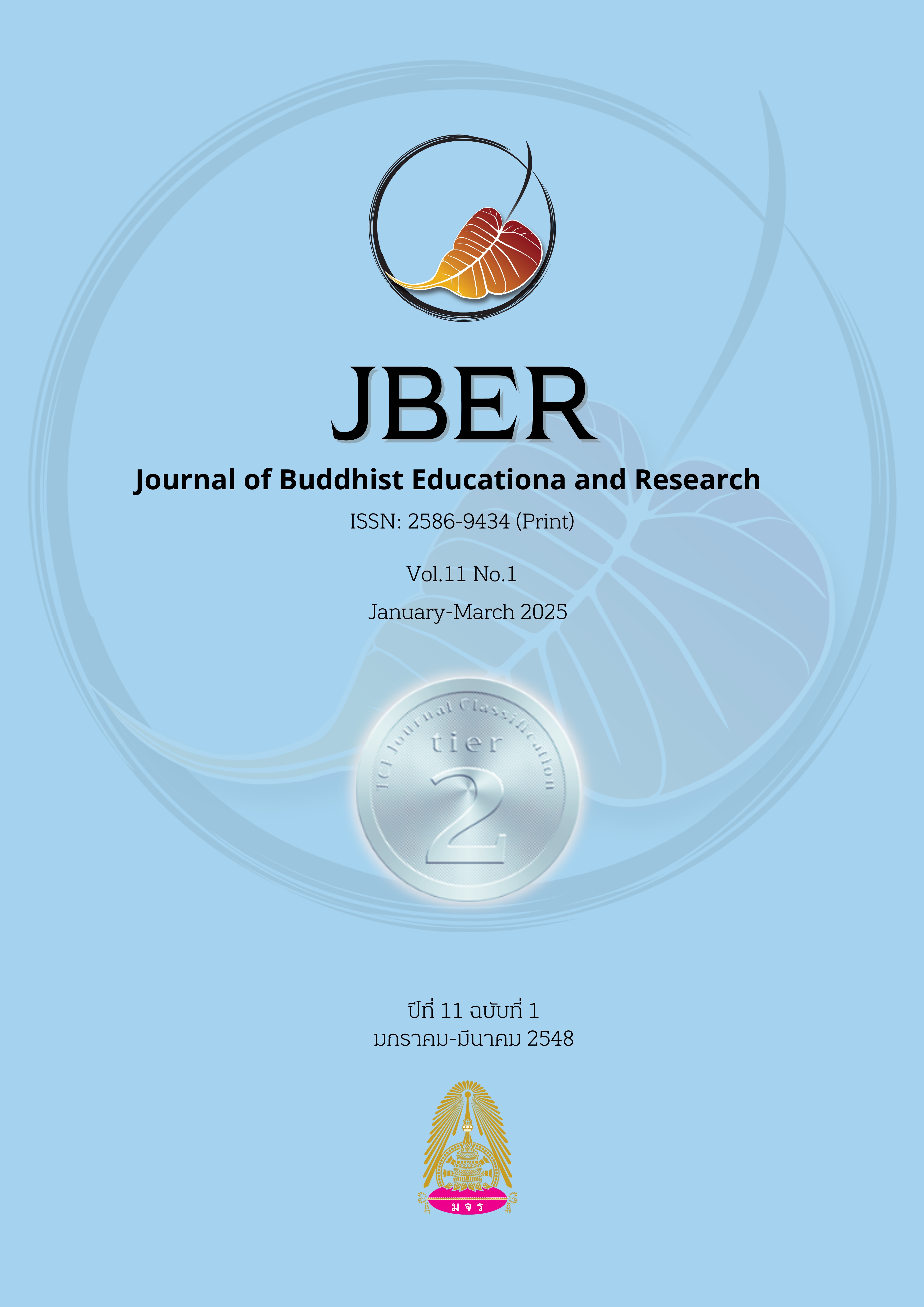The Development of Mathematics Learning Achievement on “Fractions” for 4 Grade Students by Using Board Game “A Fractional Land Conquest Mission Board Game”
Keywords:
The Learning Achievement in Mathematics, Board game, FractionsAbstract
This research aims to develop and evaluate the effectiveness of the board game “A Fractional Land Conquest Mission Board Game” based on the 80/80 efficiency criterion and to study the learning achievement of 4th-grade students before and after learning through this board game. The sample group consisted of 28 fourth-grade students from Rajaprajanugroh 6 School, Thung Song District, under the Nakhon Si Thammarat Primary Educational Service Area Office 2, during the second semester of the 2024 academic year. The sample was selected using Cluster Random Sampling and followed a One Group, Pretest-Posttest Design experimental framework. The research instruments included (1) the A Fractional Land Conquest Mission Board Game, (2) a mathematics lesson plan on fractions utilizing the board game, and (3) a mathematics achievement test on fractions, with a reliability coefficient of 0.95. Data were analyzed using percentage, mean, standard deviation, and a dependent t-test. The results indicated that (1) the A Fractional Land Conquest Mission Board Game for 4th-grade students demonstrated an efficiency level of 81.56/81.10, meeting the established 80/80 criterion, and (2) students' mathematics learning achievement in fractions after using the board game was significantly higher than before at the .05 statistical significance level, aligning with the research hypothesis.
References
กระทรวงศึกษาธิการ. (2560). หลักสูตรแกนกลางการศึกษาขั้นพื้นฐาน พุทธศักราช 2551 (ฉบับปรับปรุง 2560). กรุงเทพฯ: โรงพิมพ์ชุมนุมสหกรณ์การเกษตรแห่งประเทศไทย.
ชาคริสต์ ขำศรี, จักรกฤษ กลิ่นเอี่ยม, และวนินทร พูนไพบูลย์พิพัฒน์. (2565). การวิจัยปฏิบัติการเพื่อพัฒนาการจัดการเรียนรู้ด้วยเกมกระดานที่ส่งเสริมมโนทัศน์ทางคณิตศาสตร์ เรื่องจำนวนเต็มของนักเรียนชั้นมัธยมศึกษาปีที่ 1. Journal of Roi Kaensarn Academi, 7(10), 297-312.
ปาริชาต ชิ้นเจริญ. (2564). การพัฒนากิจกรรมการเรียนรู้โดยใช้บอร์ดเกมเป็นฐานที่ส่งเสริมความฉลาดรู้ด้านระบบนิเวศ สำหรับนักเรียนชั้นมัธยมศึกษาปีที่ 4. (การค้นคว้าอิสระปริญญามหาบัณฑิต, มหาวิทยาลัยนเรศวร).
ธิดาพร ผันผ่อน, ประภาพร หนองหารพิทักษ์, และปวีณา ขันธ์ศิลา. (2566). การสร้างบอร์ดเกมเพื่อพัฒนาผลสัมฤทธิ์ทางการเรียนคณิตศาสตร์เรื่องทฤษฎีบทพีทาโกรัส สำหรับนักเรียนชั้นมัธยมศึกษาปีที่ 2. วารสารครุศาสตร์อุตสาหกรรม, 22(1), 99–109.
นรรัชต์ ฝันเชียร. (2563). Games Based Learning หรือ GBL คืออะไร. ค้นเมื่อ 18 พฤศจิกายน 2567, จาก https://www.trueplookpanya.com/blog/content/84436/-blog-teamet
มงคล ศุภอําพันวงษ์. (2562). การออกแบบบอร์ดเกมส่งเสริมปลูกฝังการอนุรักษ์สัตว์ป่าสงวน. (จุลนิพนธ์ วท.บ., มหาวิทยาลัยสยาม).
ศิริพร ศรีจันทะ. (2562). การสร้างและใช้เกมเพื่อการเรียนรู้แบบ Active Learning สู่ชั้นเรียน : สร้างห้องเรียนยุคใหม่ให้เปี่ยมไปด้วยความสุข. ค้นเมื่อ 18 พฤศจิกายน 2567, จาก https://dev.educathai.com/events/2019/44
สฤณี อาชวานันทกุล. (2564). Board Game (บอร์ดเกม) กิจกรรมสุดอินเทรนด์เปิดโลกการเรียนรู้. ค้นเมื่อ 12 พฤศจิกายน 2567, จาก https://www.pptvhd36.com/news/%E0%B8%AA%E0%B8%B1%E0%B8%87%E0%B8%84%E0%B8%A1/143363
เสถียรพงษ์ ดวงรัตนเอกชัย. (2562). Game-based learning ทางเลือกสำหรับการศึกษาวิทยาศาสตร์ยุคใหม่. นิตยสาร สสวท, 47(216), 25-30.
สุรศักดิ์ แซ่ลิ้ม. (2564). Game-based Learning เรียนแบบสนุก เข้าใจแบบสบาย. ค้นเมื่อ 18 พฤศจิกายน 2567, จาก https://www.educathai.com/knowledge/articles/520
Downloads
Published
How to Cite
Issue
Section
License
Copyright (c) 2025 Journal of Buddhist Education and Research (JBER)

This work is licensed under a Creative Commons Attribution-NonCommercial-NoDerivatives 4.0 International License.





